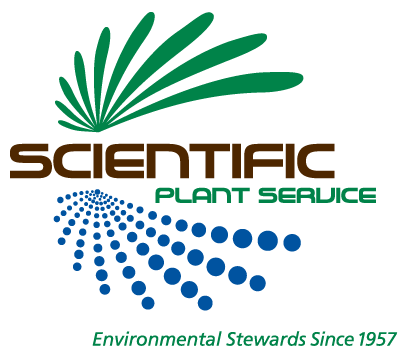Industry leader paves way to save the Bay with patented fertilizer
Baltimore, MD — Turf, (in the form of maintained lawns), has fast become Maryland’s largest crop, surpassing corn. It will, soon, surpass all row crops combined. With residential and commercial lawns and golf course turf maintenance, run-off (from fertilizer) has become a paramount concern to Chesapeake Bay advocates.
Just last week, the Maryland legislature passed SB 487 and HB 573 into law which addresses the impact of both fertilizer content and application, the results of which impact fertilizer ingredients, labeling, certification, at-home and commercial use.
Ken Mays, President of Scientific Plant Service (SPS), Inc. along with other ‘green’ industry experts, worked with the Chesapeake Bay Commission and legislators, to draft a bill that would be both effective in reducing nitrogen run-off as well as one that coincides with industry best practices.
“It is important, not only to support environmental initiatives to protect the Chesapeake Bay through its watershed, but imperative that legislators understand what the lawn and landscape industry is doing on its own, and what tools we currently use, to reduce nitrogen runoff,” said Mays.
According to the Chesapeake Bay Commission “14 percent of the nitrogen (N) and 8 percent of the phosphorus (P) pollution to the Bay can be traced back to urban and suburban nonpoint sources, predominantly fertilizer runoff.” This law applies to turf care at locations such as golf courses, businesses, cemeteries, public properties and private residences.
The new law restricts the use of fertilizer
• in winter, or when the ground is frozen,
• the distribution of fertilizer immediately adjacent to bodies of water
• prohibits the use of fertilizer as a de-icer, and prohibits the label from suggesting this as a potential use
• mandates that all fertilizer applicators be certified or supervised by a certified applicator and
• requires that fertilizer labels include the following statement:
Do not apply near water, storm drains or drainage ditches. Do not apply if heavy rain is expected. Apply this
product only to your lawn and sweep any product that lands on the driveway, sidewalk or street,
back onto your lawn.
The new law also prohibits the application of Do-It-Yourself (DIY) or commercial applicators to apply the fertilizer
before March 1 or after November 16.
The Maryland Department of Agriculture will require commercial applicators to be licensed and certified and will maintain a list of all certified fertilizer applicators in Maryland and, along with the University of Maryland, will develop and disseminate consumer information for lawn fertilizer application.
“SPS understands its stewardship of the Bay while keeping landscapes healthy,” said Mays. “In 2008 our company introduced a new fertilizer – POLYON® — specifically chosen because of its positive impact of less nitrogen on the Chesapeake Bay,” says Mays. “We are utilizing a product that already has a reduced rate of 30-50 percent of nitrogen.”
POLYON’s release mechanism is dependent upon soil temperature and moisture, meaning nutrients are released only when conditions are favorable for the turf to utilize them. The company currently applies 43 percent less granular fertilizer than it did in 2007. The applied rates of nitrogen have been reduced 30-50 percent with no sacrifice in quality results. This “smart” fertilizer – knowing when to release nutrients and when not to – prevents the risk of wasted nitrogen and excessive nutrient run-off in the Chesapeake Bay.
Mays, along with Mark Schlossberg, President of ProLawnPlus, a regular lobbyist on behalf of Maryland’s green industry to state legislators, helped develop a bill with lawmakers and the Chesapeake Bay Commission that worked for everyone.
“We brought everyone in and asked everyone to do a little bit more, in the end everybody wanted to do their part to clean up the Bay – we were really pleased with the cooperation we got from all the stakeholders,” said Maryland Director, Chesapeake Bay Commission, Bevin Buchheister.
The law goes into effect in various stages allowing applicators to conform to the new regulations and will take full effect in 2013.
# # #
Click here to view Fact sheet on POLYON® fertilizer.
Source: SPS

